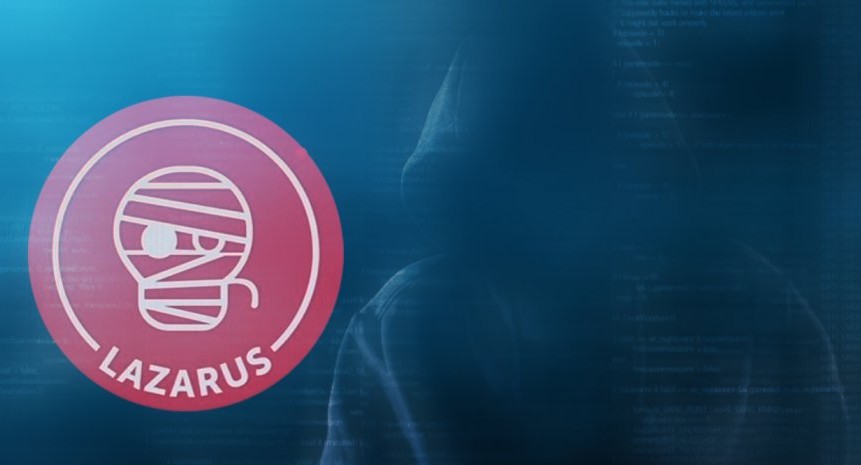
Unmasking the Lazarus Group's Attack
The Lazarus Group's sub-cluster Sapphire Sleet's recent campaign, which targets IT job seekers by impersonating skills assessment portals, is a sophisticated and multifaceted attack that exploits various vulnerabilities within the job market and individual job seekers themselves.
The Attack's Mechanism
Sapphire Sleet's approach involves creating fake websites that mimic legitimate job skill assessment services. These sites are designed to attract individuals looking for IT jobs, often in a highly competitive and sometimes desperate job market. When job seekers interact with these sites—by entering personal information or downloading supposed assessment tools—they inadvertently expose themselves to risk. The downloaded tools are, in reality, malware that can infect a wide range of systems, including both Intel and M1 Macs.
The Bigger Picture
This strategy departs from more direct cyber-attack forms, shifting toward more deceptive and indirect methods. The Lazarus Group, including Sapphire Sleet, has been known to target individuals in sensitive roles, and this campaign extends that pattern by leveraging the job-seeking process as a vector for attack.
Underlying Job Market Vulnerabilities
The tech job market teems with discrepancies between expectations and reality. A perceived abundance of opportunities and a constant demand for talent sharply contrast the reality of oversaturation in specific tech sectors, mismatches between required and available skills, and occasionally unrealistic job qualification demands. This disparity often cultivates a sense of urgency and desperation among job seekers, precisely what Sapphire Sleet exploits.
Implications of Desperation
In their eagerness to secure employment, desperate job seekers may become less vigilant, potentially lowering their defenses. This urgency can close their eyes to the telltale signs of phishing and social engineering, as the fear of missing out on scarce opportunities prompts hasty actions. Consequently, they might need to pay more attention to essential due diligence, a critical step in protecting oneself from fraudulent employment schemes. The intense competition in the job market only exacerbates this issue, leading many to prioritize immediate employment over cautious evaluation, thereby becoming more susceptible to the deceptive tactics employed by entities like Sapphire Sleet.
Dangers of Social Engineering
Sapphire Sleet's sophisticated social engineering tactics exploit the trust job seekers place in the recruitment process. These campaigns deceive individuals by posing as gateways to employment, leading them to compromise their personal information and security. Such deception endangers not just the job seekers but also the companies and industries they might join. In the hands of Sapphire Sleet, this compromised information could pave the way for broader security breaches and espionage activities.
Impact Beyond the Individual
While the immediate effect of such campaigns is the compromise of individual data, the implications are far-reaching. The malware has the potential to access sensitive corporate networks, leading to data breaches, intellectual property theft, and even national security risks if the job seekers are involved with defense or sensitive sectors.
Need for Awareness and Education
The current landscape underscores the critical importance of cybersecurity education. Job seekers must learn to recognize signs of fraudulent activity and understand the necessity of confirming the authenticity of job-related communications. Additionally, companies are responsible for safeguarding their recruitment processes and establishing secure communication channels resistant to impersonation. Job seekers and employers must actively engage in these protective measures to mitigate the risk of falling prey to sophisticated cyber threats like those posed by Sapphire Sleet.
Policy and Cybersecurity Response
The emergence of state-sponsored cyber threats necessitates a concerted policy-level response. Governments must collaborate to forge international frameworks aimed at combating cyber espionage. Simultaneously, it is imperative to devise and enforce robust national cybersecurity strategies. These initiatives should focus on deterring such threats and building resilient infrastructures that can withstand and respond to the sophisticated tactics of groups like Sapphire Sleet.
Persistent Evolution of Cyber Threats
The Lazarus Group's ongoing campaign is a stark reminder of cyber threats' dynamic and ever-evolving nature. It underscores that human vulnerability often presents the most significant security gap. To effectively counteract these sophisticated threats, a multifaceted approach is required. It is imperative for individuals to cultivate a heightened sense of awareness and for organizations to establish robust preparedness protocols. Moreover, this situation calls for an escalated response at the policy level, necessitating cohesive national and international strategies to bolster cybersecurity measures. Through such a comprehensive and collaborative effort, we can only safeguard against the complex and adaptive dangers of state-sponsored entities like the Lazarus Group.
